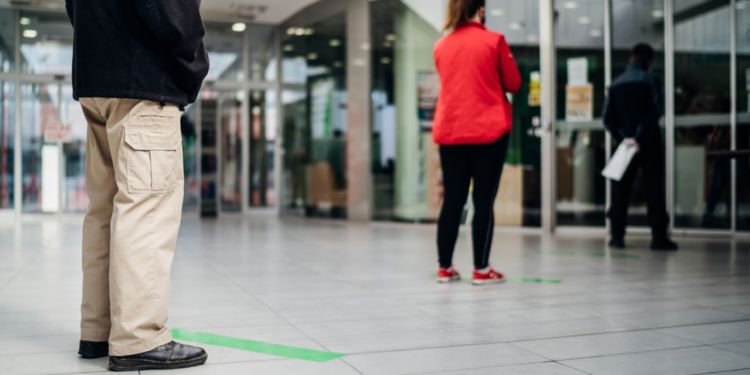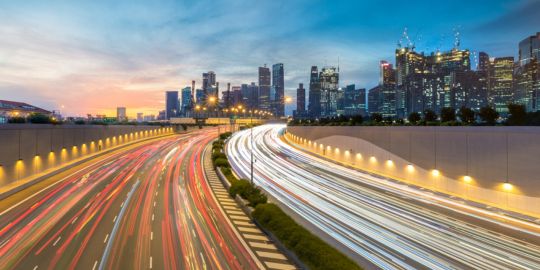Changes in Singapore since the COVID-19 pandemic?

The COVID-19 crisis has brought about many changes in Singapore, as in most countries, whether in terms of entry conditions, labour market, real estate, or social life. If you're looking to relocate to Singapore after the crisis, here's what you should expect.
What are the current regulations for entering Singapore?
Since March 2020, non-essential travel is not allowed in Singapore, with a few exceptions. Only Singaporeans, permanent residents, long-term permit holders and their dependents, as well as visitors with authorisation from the Ministry of Manpower, the Immigration and Checkpoint Authority (ICA) or another government agency, are allowed to travel to Singapore. Also, travellers are quarantined for 14 days in an isolation centre. The fees of SGD 2,000 are their responsibility. Travellers are also required to undergo a COVID-19 test which costs around SGD 200. Refusing to comply with these rules is considered an offence and leads to penalties. Besides, travellers are required to produce a duly completed good health certificate within 3 days of their arrival. The application can be made on the SG Arrival Card e-Service page.
Have there been visa changes recently?
Foreign nationals from approved countries and regions must have a SafeTravel Pass for official stays and business trips to Singapore through the Green / Fast Lane provisions. The application must be made either by a Singapore-based company or by a government agency. Once approval has been granted, the applicant and the sponsoring company, or government agency, receive a confirmation letter. The traveller can then apply for a visa if he is bound by the visa requirement. Find out more on the ICA website. They must also have a return ticket and have been tested negative for COVID-19. In the case of Long Term Pass holders who are abroad, they must first request the authorisation of the Ministry of Manpower through their sponsor to be able to return.
Is it easy to find work in Singapore following the crisis?
As in most countries, the COVID-19 pandemic had a considerable impact on the Singaporean labour market. According to the Ministry of Manpower, there was a decline in the number of jobs available in the manufacturing, services and construction sectors in recent months. In contrast, according to a study by JobStreet, there were more than 11 million online job searches during the pandemic. More than 33,000 jobs were available in different sectors in Singapore at the end of May 2020. Health, banking and finance, information and communication technology (ICT), security, transport and logistics, engineering and insurance are the sectors that are currently recruiting -- which means that you can start your job search until border restrictions are lifted.
How has the Singaporean healthcare system performed during the crisis?
Despite the second wave of COVID-19, Singapore can be praised for how it handled the crisis thanks to its high-tech healthcare system. Many buildings, including exhibition centres and hotels, have been converted into isolation centres to meet growing demand. Health professionals, including retirees and others working in the private sector, were recalled and redeployed following new training. Patients who no longer require intensive care are transferred to private and community isolation centres for further treatment. Also, telemedicine became increasingly popular during the pandemic in order to reduce physical medical consultations. Mobile apps made it possible to get online medical appointments and advice. Even medication and sick leave notes are delivered at your doorstep. Virtual medical appointments could be the new norm in Singapore, taking into social distancing regulations.
Has anything changed regarding universities and schools?
All schools in Singapore reopened on June 2, in compliance with social distancing rules and other precautionary measures recommended by the government. The wearing of masks is compulsory both for students and teachers. Those having a family member with COVID-19 or flu-like symptoms are advised to stay away from school. Also, the interaction between the different levels and classes has been reduced. Arrivals and departures, as well as recess, take place at different times. Regarding higher education, international students with a Student Pass (STP) or In-Principle Approval for STP who are already enrolled in a university in Singapore must obtain authorisation from the Ministry of Education to be able to return. The application can be made here. This authorisation is valid for 14 days from the date of issue. Classes and lectures are limited to 50 people -- those with a larger number of participants are done online. Some social activities are also allowed in small groups, as long as there is no physical contact between the participants.
How is the real estate market following the crisis?
Even if things are still going at a slow pace, the Singaporean real estate market is stabilising. Local authorities have recorded a 12% drop in the sale of new homes since the beginning of this year due to the crisis. During the same period, a 1% price drop was recorded. Overall, a price drop of 3 to 5% is expected by the end of 2020. However, more than 500 properties have found buyers by April 2020 in different districts, including upmarket areas. Note that most of the buyers (82%) were Singaporeans. It's worth noting that during the first quarter of 2020, the prices of new homes in the central region increased by 6.1% while resale prices dropped by 0.7%. In the suburbs, there was a 4.1% price rise for new homes and a 1.1% drop in resale prices. Rental applications have also dropped significantly during the pandemic, even though there was no clear implication on rent prices.
Has the cost of living changed because of the crisis in Singapore?
According to reports by Mercer and ECA International, Singapore remains one of the world's most expensive countries for expats, and this is not likely to change in light of the COVID-19 crisis. Food and retail industries are the most impacted sectors. The shortage of a number of household and personal care products has led to higher prices, coupled with job losses and salary cuts. However, the Singaporean government has set up a special support plan to help the population meet the cost of living. Also, a drop 4% to 7% drop in GDP is expected by the end of 2020.
How about lifestyle? Have there been major changes in habits following the sanitary crisis?
Although things are slowly getting better in Singapore, the COVID-19 crisis had a considerable impact on the lifestyle of people. Local authorities have implemented a series of measures aiming at providing maximum safety for the population. The wearing a mask remains compulsory, even in schools, and social distancing has become the norm. As mentioned above, many courses are being held online, while group activities are limited to a certain number. At workplaces, the SafeEntry system controls entries and exits. The population is also encouraged to use the TraceTogether app. Besides, according to a study by Ipsos, 71% of Singaporeans still fear the COVID-19. Thus, they prefer to stay cautious even though the Singaporean government advocates a return to normalcy. Regarding social life, less than half of respondents intend to eat out at restaurants and cafes as much as they used to before the crisis. While 53% of have no intention to travel this year, even when all travel restrictions have been lifted, 30% are not willing to participate in cultural activities or gatherings, and go to the gym and get any sports membership.









